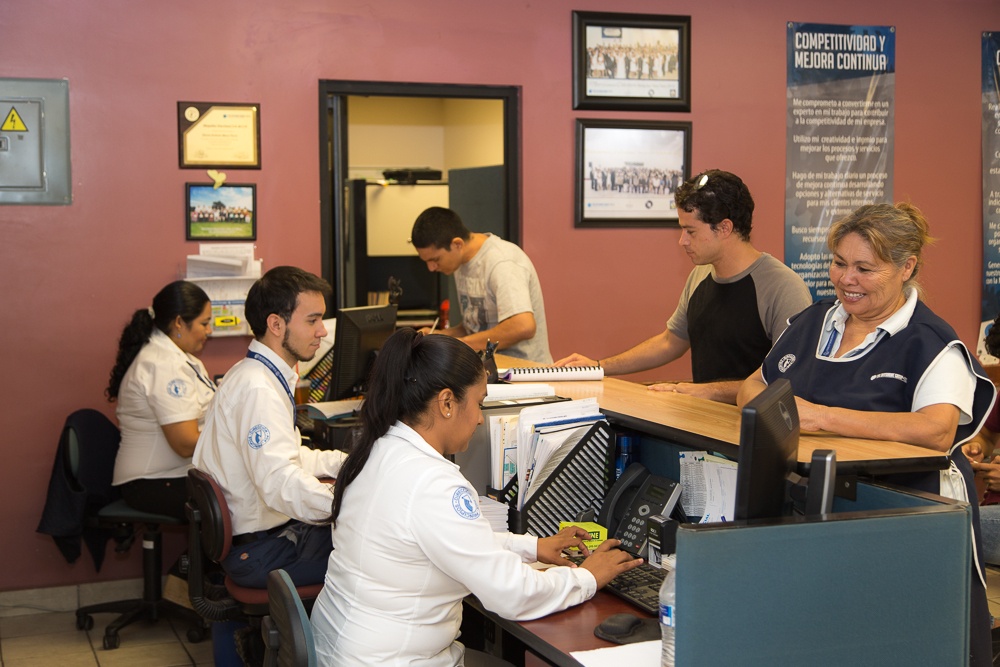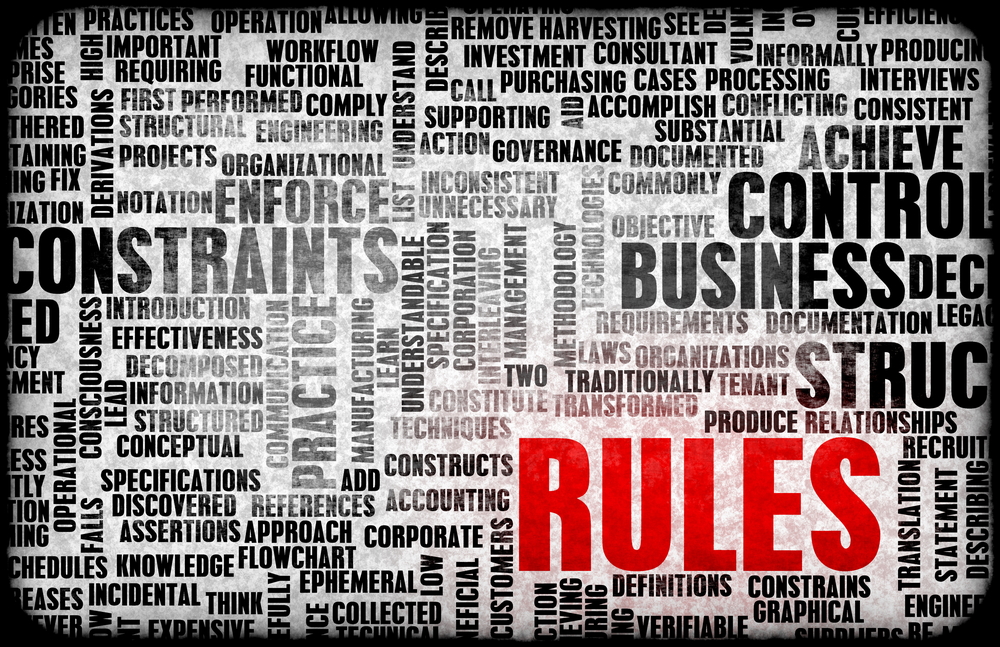Are you thinking about manufacturing in Mexico? Whatever your reason for expanding into Mexico, this checklist will help you examine both the basic and difficult questions that you should be considering. You may know how to set up a manufacturing operation smoothly, but Tetakawi is here to help you seamlessly do so in compliance with Mexico’s laws, regulations, and hiring best practices.
While the following checklist is not exhaustive, it should direct investors new to Mexico to consider critical first steps in establishing a maquiladora - a foreign owned factory in Mexico.
Find industrial real estate for your manufacturing plant in Mexico
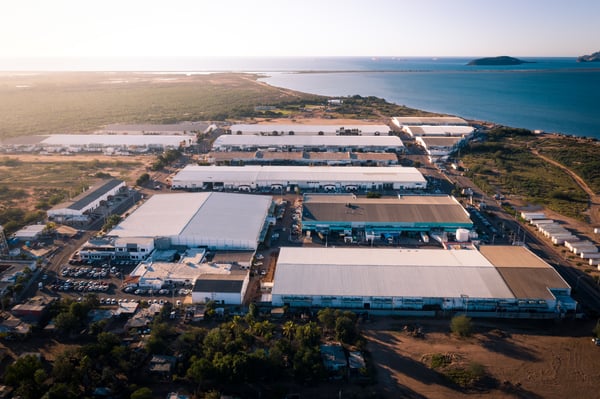
Whether purchasing a greenfield site on which to build or leasing industrial space, there are some specific steps you’ll need to complete to ensure your facility meets your needs. Check the following items off your list, and you’ll be on your way to ramping up production in Mexico.
Tips for leasing industrial real estate in Mexico:
- Arrange tours of industrial parks and buildings in the locations that you are considering.
- Get to know local lease rates, terms and triple net charges.
- Identify responsibility for typical maintenance, repair and improvement responsibilities.
- Ask the landlord how leaseholder improvements will affect the lease rates negotiated.
Tips for buying a greenfield or stand-alone facility in Mexico:
- Determine land availability in target location.
- Gather local construction lead times and average costs.
- Determine local property tax rates.
Identify the availability and cost of utilities in Mexico
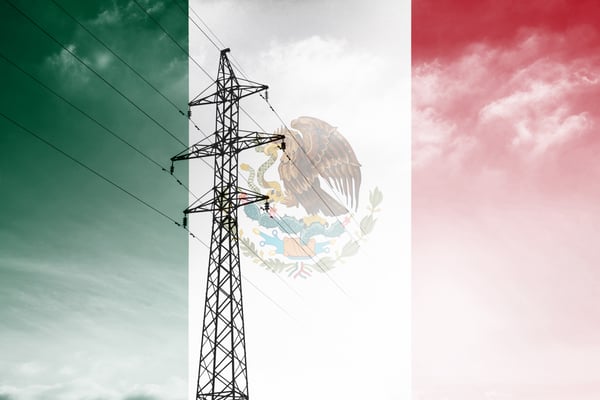
Utility costs in Mexico will present a significant portion of ongoing factory overhead, so it’s important to identify reliable providers and budget for these costs upfront. In this step, you will need to:
- Determine electrical power availability.
- Identify costs for electrical capacity, consumption, demand, and power factor.
- Get to know power reliability for local areas.
- Develop backup contingency plans for electric power
- Determine availability and cost of providing gas:
- Propane.
- Natural.
- Production gases (argon, nitrogen, ect.).
- Contact water, sewer, and waste removal providers for availability and costs.
- Contact voice and data connectivity providers for availability and costs.
Labor considerations for manufacturing in Mexico
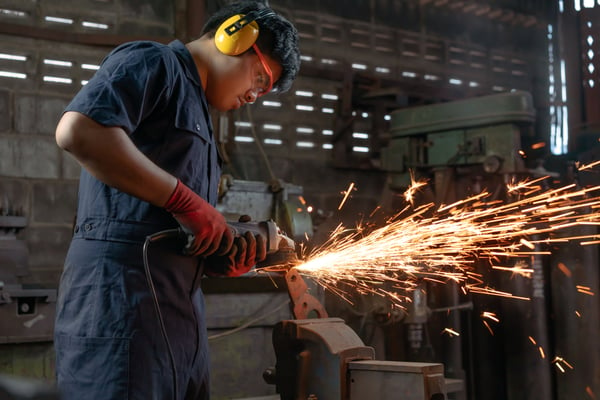
Your people will be critical to ensuring operational success. By focusing upfront on developing proper hiring practices, establishing competitive pay and incentives, and building in opportunities for ongoing training, you can develop a loyal, productive workforce in Mexico.
Identify staffing needs to meet target productivity.
- Predict your headcount at various phases of planned or anticipated growth. Identify needed positions for direct labor, as well as clerical, supervisory, technical, engineering, management and leadership positions.
- Design an expected work week around legal work week requirements in Mexico: 48 hours per week for day shift, 45 hours per week for mixed shift, 42 hours per week for a night shift. Remember, employees who work on Sunday receive an additional 25 percent beyond the regular daily wage.
- Determine needs for temporary employees versus permanent employees at startup.
- Create a plan for hiring based on regional expectations.
Estimate your labor costs in Mexico
- Get to know local wages for direct, indirect, and salaried labor at comparable workplaces to create a comparable pay scale.
- Identify legal benefits and expected bonuses. This includes:
- Paid vacation and a vacation “premium,” or prima, calculated as a minimum of 25 percent of the salary added to the daily pay rate for vacation days.
- Aguinaldo or the thirteenth salary, a minimum of 15 days of pay at the employee’s typical daily rate (excluding the first year, which is prorated) paid out by December 20.
- Ascertain local benefits, bonuses and incentives offered at comparable local workplaces. Offering competitive benefits and bonuses is critical in reducing turnover in Mexico.
- Determine whether you’ll need to provide employee transportation for direct and/or hourly laborers.
- Account for potential costs of childcare and medical care.
- Get to know typical local attrition rates. If possible, determine what practices at competitive companies work to lower those rates.
- Consider potential employee severance costs.
- Build in training for your specialized manufacturing needs.
- Identify available skillsets in the local work force, including managerial and leadership positions.
- Determine how much in-house training will be provided. Reach out to local universities or vocational schools to determine if partnerships are possible to support that training.
- Work with equipment suppliers to develop training for specialized operational tasks.
- Plan for need for skills development and education in Lean, Six Sigma, 5s, and other efficiency/improvement methodologies or quality systems knowledge.
- Work with local labor unions in Mexico.
- Get to know local unions, costs, and negotiating partners. Keep in mind, Mexico enacted labor reform in May 2019 that is likely to impact local unions and promote the establishment of new unions.
Supply chain and logistics considerations in Mexico

Every country has unique export rules, and Mexico is no exception. While there are numerous partners available to simplify this process, below we list some of the first steps to take to streamline shipping.
- Meet with local suppliers to understand their:
- Parts capacity.
- Capability to ramp up to meet changing needs.
- Competency in providing quality parts.
- Competitiveness with other suppliers.
- Contract with local freight providers. This may include ground, air, ocean and rail providers.
- Prepare to work with an authorized Customs Broker. Only authorized Mexican Customs Brokers are allowed to clear goods through Mexican customs.
- Get to know importer and exporter of record responsibilities and risk.
- Register your business into Mexico’s Import Records (Padron de Importadores)
- Prepare documentation to include:
- Commercial invoice.
- Bill of lading.
- Shipment declaration (pedimentos and entries)
- Certificate of origin.
- Country of origin and product marking determination.
- Transit insurance paperwork.
Legal framework, regulatory compliance, and government regulations in Mexico
As you set up your manufacturing company in Mexico, it’s important to get to know local laws and ensure compliance with Mexico’s manufacturing regulations. Working under the legal protection of a shelter service provider can eliminate some of the complexities of Mexico’s regulatory requirements.
Some areas to note include:
- Fiscal and tax laws. Note that Mexico’s 2020 tax reform includes an amendment to Article 183, which governs maquila activities carried out through IMMEX shelter programs.
- Get to know the value added tax rate for your location.
- Account for safe harbor and transfer pricing for maquiladora operations.
- Customs compliance in Mexico, including eligibility with:
- IMMEX requirements
- International free trade agreements.
- USMCA requirements.
- Environmental laws in Mexico, including:
- The General Law of Ecological Balance and Environmental Protection, as enforced by the Federal Attorney Office for Protection of Environment.
- Organizations that will emit potential hazardous substances must obtain an Environmental Impact Authorization from the federal or state environmental agency. This authorization can be obtained by competing the Single Environmental License (LAU), an authorization for the operation of fixed sources of potential pollution as regulated by federal authorities.
- Health and safety laws in Mexico, including:
- The Mexican Federal Labor Law, which allocates basic labor law, including requirements for worker compensation and workplace health and safety.
- The Social Security Law, which provides financial protection including worker compensation benefits.
- Mexican Federal Regulations for Occupational Safety, Sanitation, and the Environment
- General Regulations for Inspection and Penalties for Violations of Labor Legislation
- National and international intellectual property laws. Note that in 2018 Mexico updated several areas of its IP law to provide greater protection to businesses. International trade agreements, such as USMCA, also outline IP requirements with which manufacturers exporting out of Mexico must comply.
- Municipal, state and federal incentives. For example, Mexico’s seven special economic zones offer unique incentives including a company tax rate of zero for a ten-year investment period.
Manufacturing in Mexico is easier than you think

Although every manufacturing operation will have different needs, this checklist can get companies started in exploring the steps to take before operations can begin. Organizations that launch their factory in Mexico with the proper foundation will find they can eliminate many unpleasant surprises and operate more easily within their projected budget from Day One.
A more exhaustive checklist can be found in our free ebook: Questions to Ask About Manufacturing in Mexico.
Subscribe
Sign up and stay informed with tips, updates, and best practices for manufacturing in Mexico.


